Unpleasant analyses and new friendships at the second KIU summer school
For two weeks, 25 students from Europe, Asia and Australia discussed European-Ukrainian relations at the second summer school organised by the Competence Centre for Interdisciplinary Ukrainian Studies (KIU). From 8 to 19 September 2025, the programme included language courses and writing workshops, a simulation game on Ukraine's EU-integration and numerous lectures and workshops. Many participants described the exchange of different perspectives as particularly valuable.
With students from Ukraine and Germany, the USA, France and Denmark, the second edition of the summer school offered numerous perspectives. Curiosity, a thirst for knowledge and an interest in the Ukrainian language were just as much part of the participants' motivation as an inner mission to report on Ukrainian perspectives. "I was delightet by the level of knowledge of the participants and how well they know Ukrainian language ," said Artem Kucherov, describing his impression. The student from Kyiv had travelled to Frankfurt by train to attend the summer school and experienced an encouraging atmosphere. "I'm surprised at how interested and invested everyone is. With this good cooperation and people like this, Ukraine can have a great future," he said. Ruslana Ivaniura from Lviv had learnt from a participant at the first KIU Summer School that many non-Ukrainians were also very interested in taking part - a reason for her to apply. When asked about the most valuable impressions she cited a simulation game on the integration of Ukraine into the European Union and the intensive workshops in academic writing that the Ukrainian participants attended while the others learnt the language in Ukrainian courses.
Varied programme at the KIU summer school
Daniel Leicht from Germany and Jakob Kristen Winter Overgaard from Denmark were among those studying together on the language courses. Both were brought to the summer school by a very personal connection to Ukraine. A large part of Daniel Leicht's family belonged to the German minority in southern Ukraine. "I have an emotional and personal connection with this country," he said, admitting that he still repeatedly reaches the limits of his knowledge in conversations with friends or acquaintances. He described the lecture by Dr Elmira Muratova from the European Centre for Minority Issues on the Crimean Tatars as the highlight of the summer school.
Jakob Overgaard's relationship with Ukraine began two years ago when he became involved in voluntary refugee aid for Ukrainians during a stay in Estonia. Since then, he has been involved in several Ukrainian projects and sees the summer school as an opportunity to further his professional development. Language is key for him: "Language is crucial and the best way to get in touch with another culture," he emphasised.
Nathan Hourcade from Paris, who developed such an interest in Ukraine through Ukrainian music that he recently completed an award-winning master's thesis on French-Ukrainian relations, takes a similar view. He was particularly inspired by the international exchange at Viadrina. "Participants from Ukraine and those from other countries can learn a lot from talking to each other. This exchange reflects the diversity of opinions and experiences," he said.
"The more you get to know each other, the less it is possible to hate each other or develop certain negative emotions," summarised Daniel Leicht. The summer school is good proof of this. Jakob Overgaard also emphasised: "I can only encourage you to go out and build relationships with people in other countries. It helps you to better understand other perspectives that you wouldn't have thought of on your own."
But it wasn't just the participants who benefited from the exchange; the lecturers also learnt a lot from the discussions with the students. Mattia Nelles, founder and managing director of the German-Ukrainian Office, came to the summer school to give a lecture on Ukraine's path to EU accession. For him, it was a valuable opportunity to "simply put our expert knowledge to the test and get feedback on what we do in our little ivory tower as a small think tank". He called the Viadrina the "most pro-Ukrainian place outside Ukraine" and yet he was not afraid to present unpleasant analyses. "My thesis is that Ukraine is not in a position to join the European Union at the present time unless it makes a fundamental course correction. Unfortunately, this will not be possible with politicised and politically controlled institutions," was his assessment, which he discussed with the participants.
The participants were finally able to demonstrate how much they had learnt during the two weeks at a farewell party and Ukraine quiz at verbuendungshaus fforst. It was a convivial evening that emphasised what this summer school is also about: new friendships.
Frauke Adesiyan
Back to the news portal
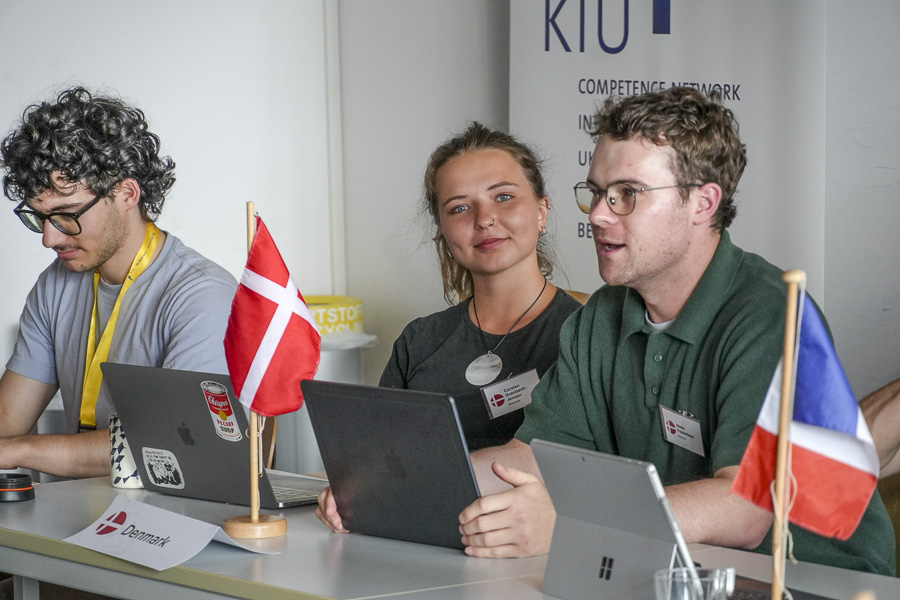
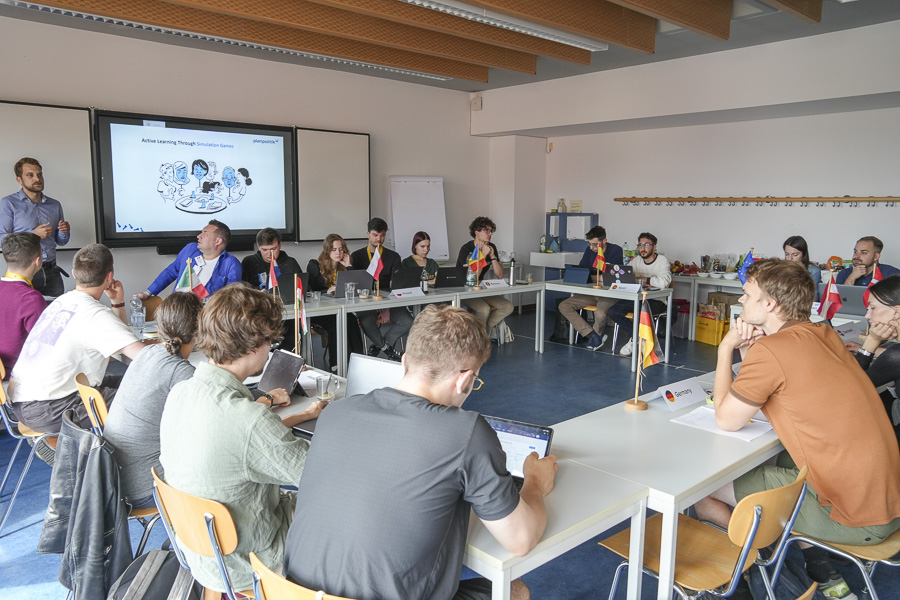
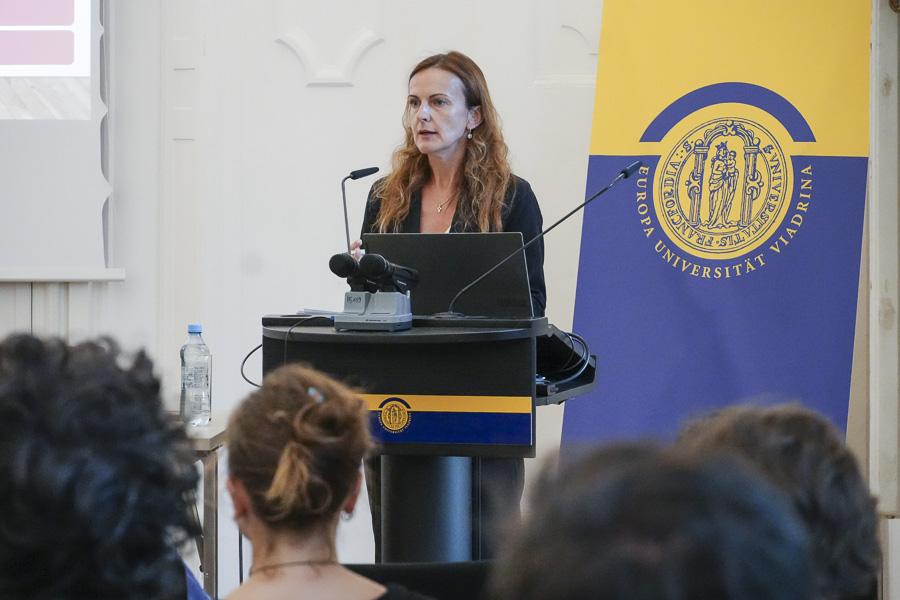
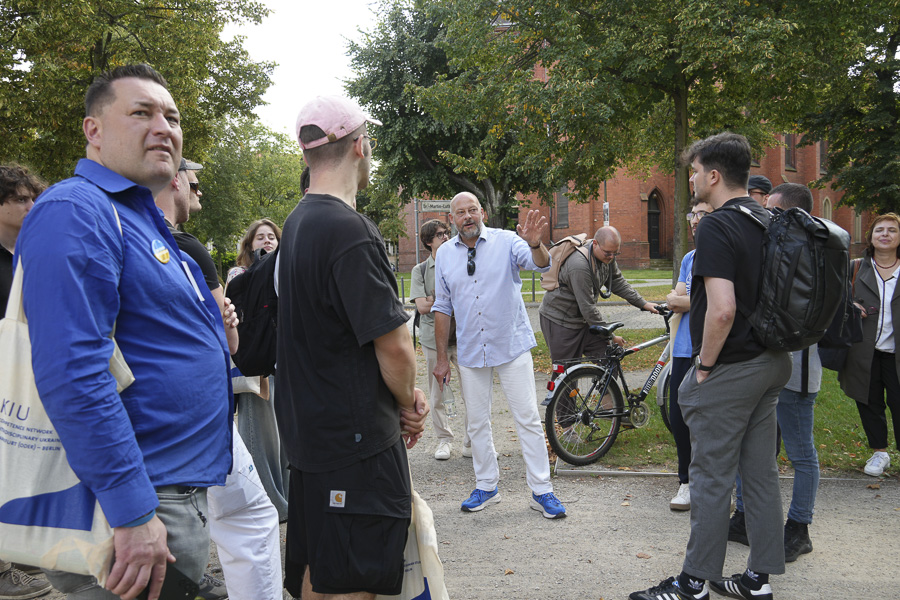
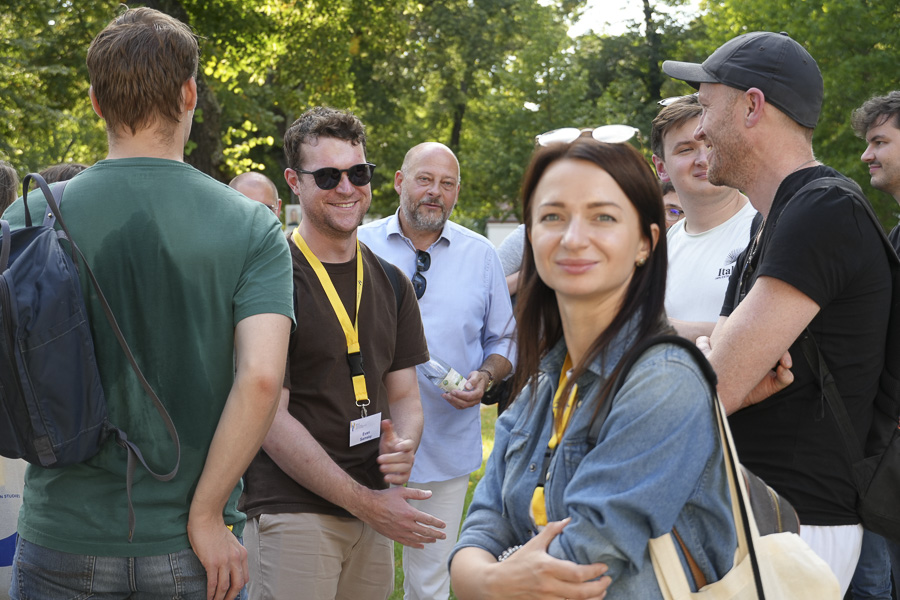
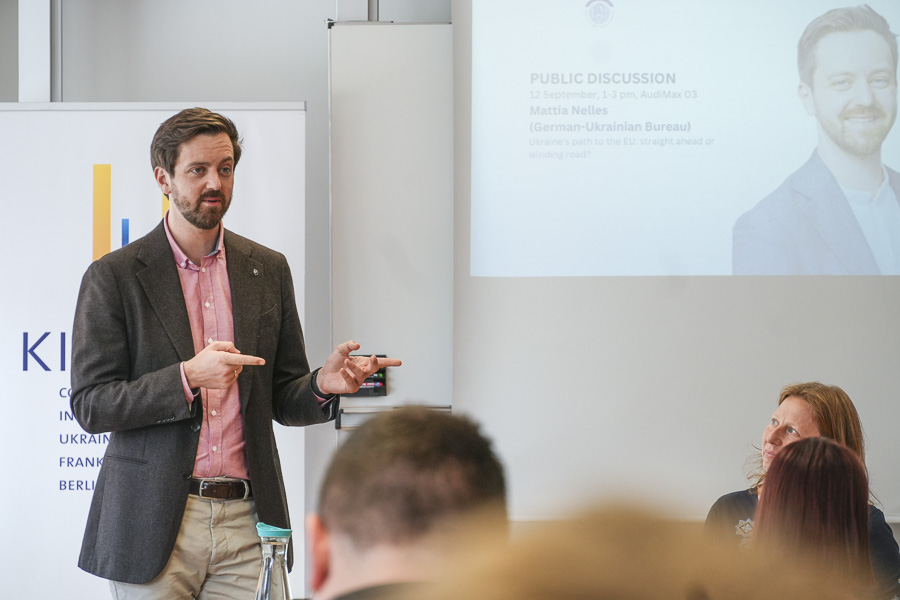
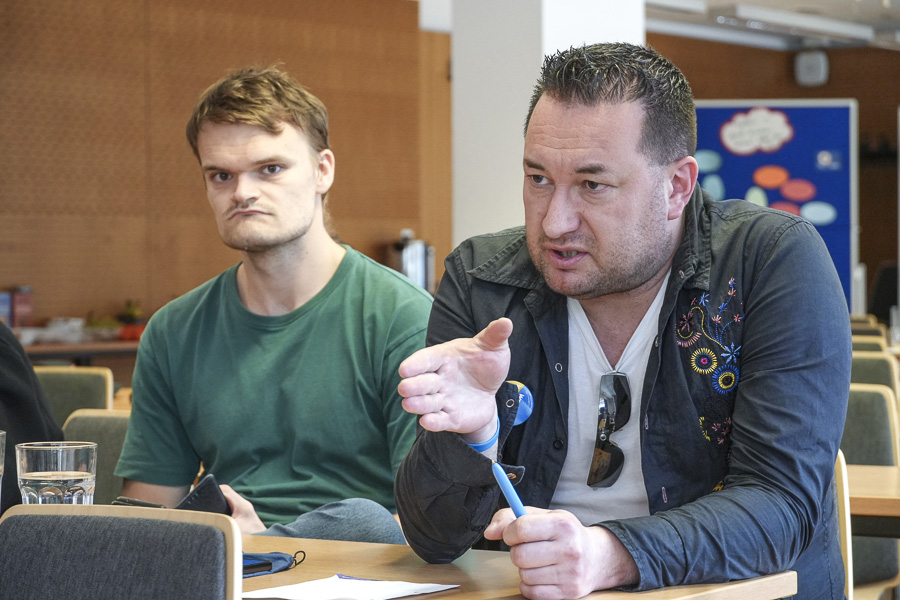
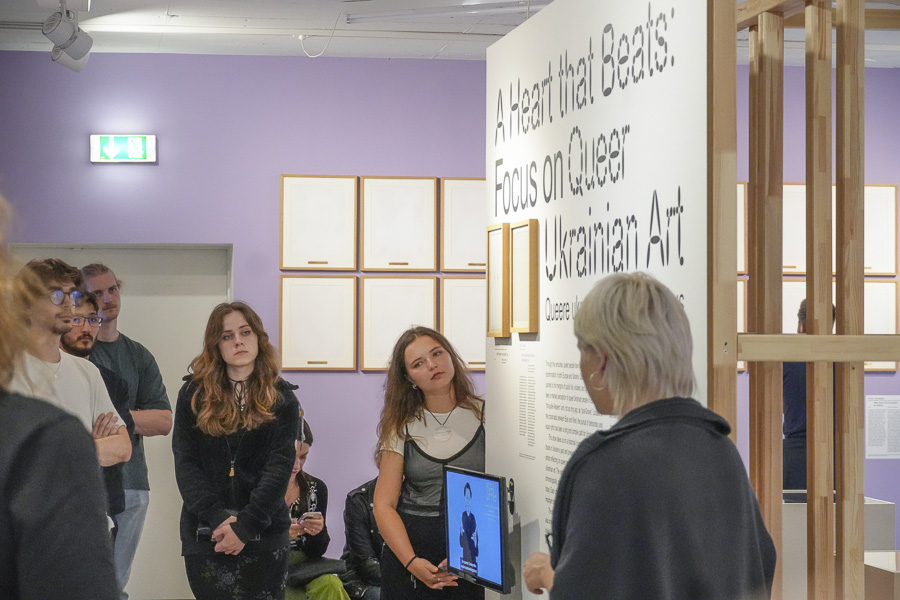
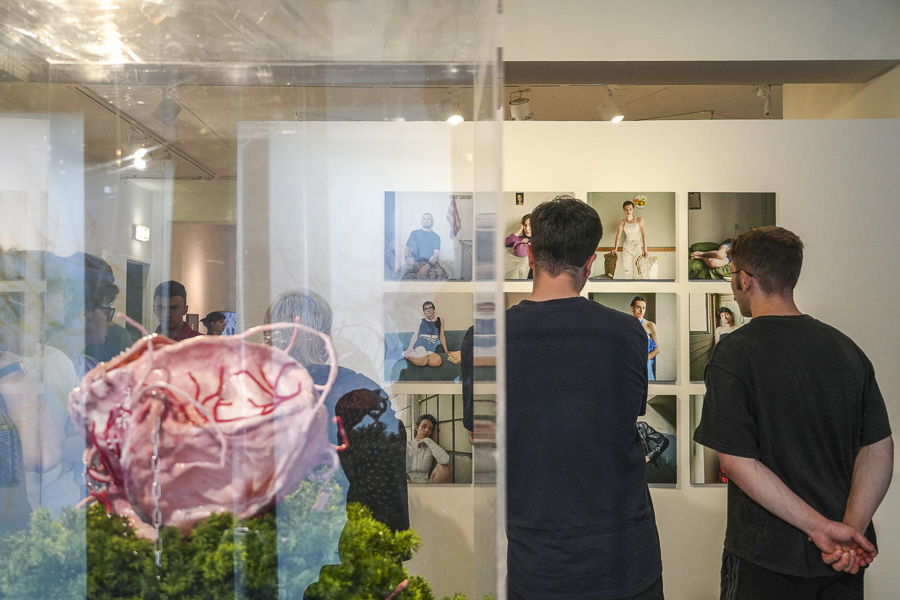
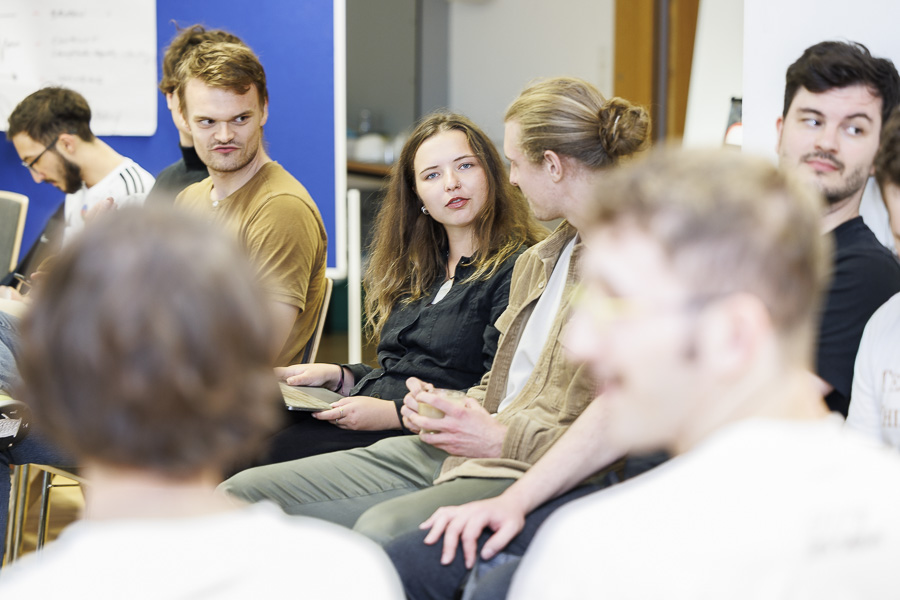
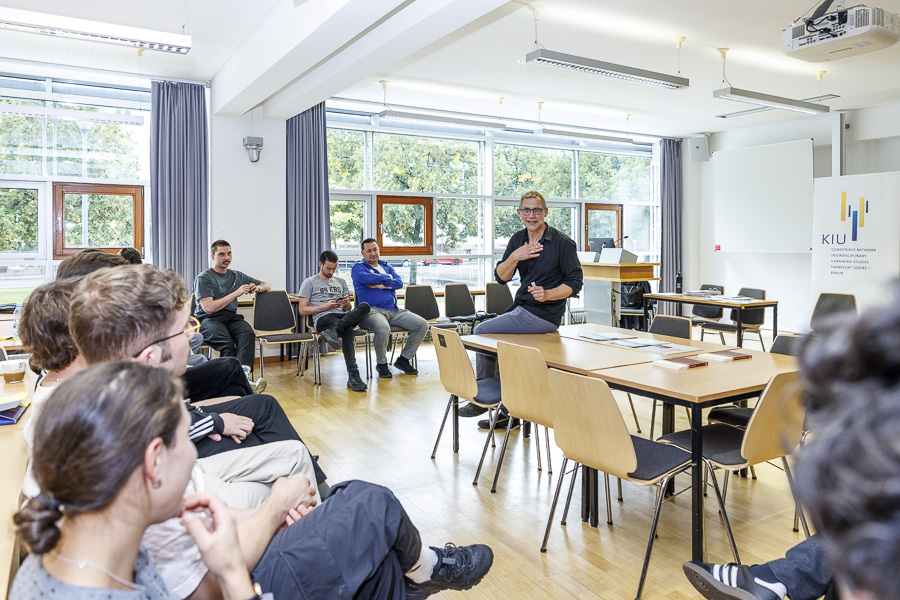
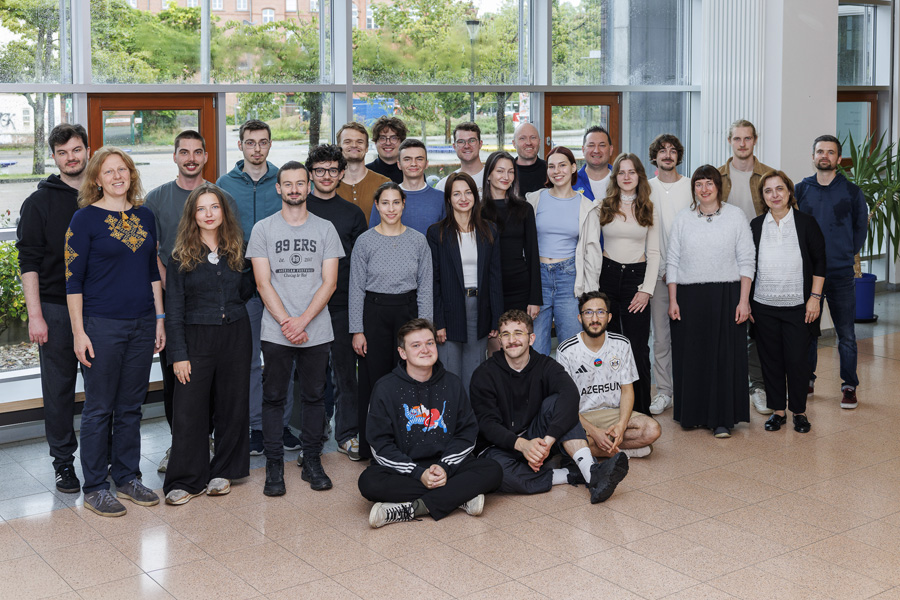
Share article: